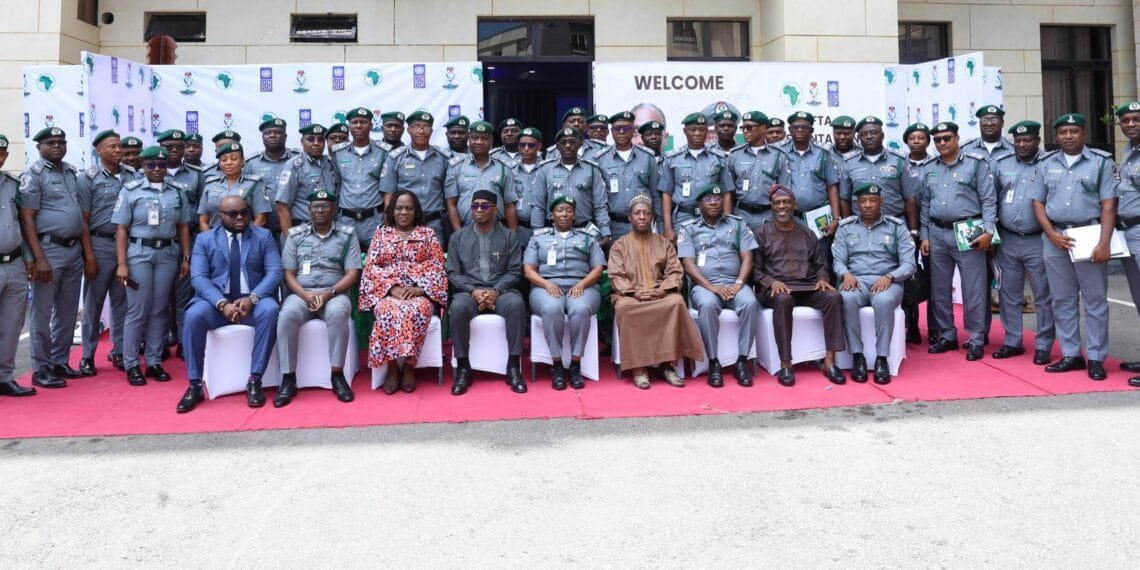In an effort to further enhance trade facilitation across the African continent, the Nigeria Customs Service (NCS) in collaboration with the African Continental Free Trade Area (AfCFTA) Coordination Committee, held a one-day workshop on October 17, 2024 in Abuja.
The event brought together key officers of the NCS, including Area Controllers and representatives from the AfCFTA Coordination Office to discuss strategies for improving trade across Africa.
In his opening remarks, Segun Awolowo, National Coordinator of the AfCFTA Committee, Mr. Segun Awolowo highlighted the immense potential of AfCFTA in transforming Africa’s economic landscape.
He explained that AfTCA’s role in eliminating tariffs on most goods and services, reducing barriers to capital and labour, as well as creating a friendlier environment for investments on the continent.
“The objective of today’s workshop is to highlight the crucial role played by our trade exit points, the vital function of our port Area Controllers, and the importance of Customs command posts under the AfCFTA framework. These elements are pivotal in ensuring that the seamless facilitation of trade, as envisaged by the AfCFTA, becomes a practical reality for businesses in Nigeria and across Africa,” Awolowo said.
In a statement made available to journalists by the National Public Relations Officer (NPRO) of Customs, Abudullahi Maiwada, Deputy Comptroller-General of Customs in charge of the NCS Tariff and Trade Department, Caroline Niagwan, who represented the Comptroller-General of Customs (CGC), Adewale Adeniyi, at the event, restated the NCS’s commitment to fully supporting the implementation of AfCFTA through measures that simplify trade processes and promote regional integration.
“It is our responsibility to ensure that we deploy efficient measures that simplify the implementation of AfCFTA. This includes the digitization and harmonization of Customs procedures to facilitate the smooth flow of goods and services across African borders,” Niagwan said.
 Read also: Stop introducing GMOs into Nigeria’s food systems, HOMEF tells FG
Read also: Stop introducing GMOs into Nigeria’s food systems, HOMEF tells FG
She further stressed the need for the NCS to modernize its operations by leveraging digital tools that streamline trade processes and improve overall performance, adding: To achieve the objectives of the AfCFTA, we must embrace technological advancements that enable us to carry out our mandate efficiently.”
The workshop also addressed the significant opportunities AfCFTA presents for small and medium-sized enterprises (SMEs) and AfTCA is expected to position African SMEs to compete more effectively on the global stage by unlocking new markets and removing trade barriers.
The collaboration between the NCS and the AfCFTA Coordination Committee is considered essential in ensuring that the continent fully benefits from integrated trade, ultimately fostering sustainable economic growth across Africa. And it marks another step in Nigeria’s ongoing efforts to align its trade policies with the broader vision of African economic integration and development.






